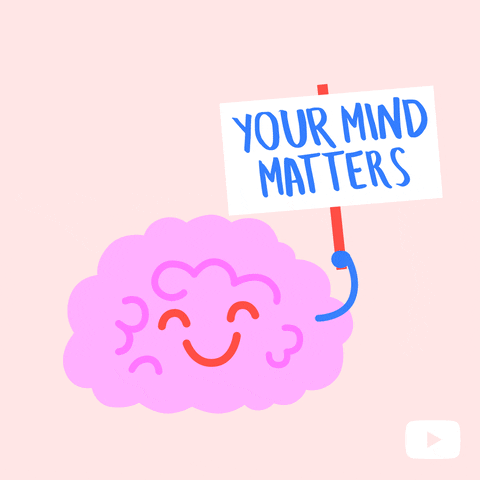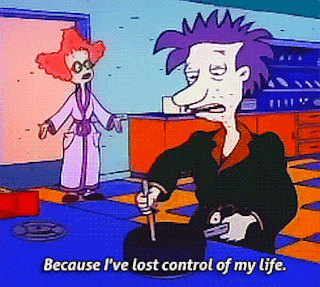You may be starting to feel or have been feeling symptoms of pandemic fatigue. Maybe you’ve heard of it or maybe you haven’t. Either way we’re all tired from following COVID-19 guidelines. Before you toss in the towel and say “I’m over it” – hear me out on some tactics for preventing COVID fatigue.
What is Pandemic Fatigue?
Pandemic fatigue is characterized by the following:
- Decreased motivation to follow COVID guidelines and recommendations
- Engaging in behaviors that put you or others at higher risk
- Not staying up to date on or following emerging COVID-19 information
- Experiencing changing emotions about the consequences of COVID restrictions
- Developing changing perceptions about the threat and risk of the virus
- Developing an urge for self-determination and freedom from restrictions

8 Ways to Cope with Pandemic Fatigue
It is completely normal to experience pandemic fatigue as I’m sure many of us are. To help cope and combat pandemic fatigue, consider trying these 8 steps:

Make Mental Health Care a Priority.
If you are feeling down and finding it hard stay positive, it may be time to set up an appointment with your doctor or mental health professional. There are several on campus resources such as Counseling and Health Services. Counseling Services hosts a variety of events to help you connect with other students and practice healthy coping skills. Follow @WSUHealth on Facebook for more Counseling Services events and details.

Find Ways to Stay Connected with the Campus Community and your Friends.
Consider joining a club, partaking in virtual activities, checking out the Outdoor Education and Recreation Center (OERC), or going to a local museum or park with a friend.

Maintain Hope.
Try to stay positive, maintain hope, and know that there will be an end to this pandemic and life with get better someday. Things are already starting to look up as COVID-19 booster shots are here–brighter days are ahead.
Focus on being grateful for what you have and enjoy those little moments of life such as getting a Starbucks coffee from Zane’s in the morning. Have hope for the future and know that you have so many possibilities ahead of you and things left to accomplish and experience.

Create a Routine – and stick to it.
Make sure that you are making a schedule and doing little things throughout your day to help you feel accomplished, like you are moving towards something–such as a goal and making changes in your life.
When you stop doing normal things, or stop routines, you lose the feeling of change. To help with this, try moving from your bedroom–to your living room or change out of those pajamas, or loungewear–and into regular clothes.

Focus on What You Can Control.
It is important to prioritize the things in your life that you do have control over. Although it is hard to control the pandemic, you can control what you do on a daily basis.
Focus on the things that will make you better; such as eating a healthy diet, exercising regularly, practicing self-care, prioritizing your mental health, or anything else you feel will help you.

Practice Positive Affirmations.
Some days it may be harder than others to look on the bright side or be happy with how things are going. When I am feeling this way, I find it often helps to take some time each day to reassure myself that I’m doing the best I can. I do this by writing down 3-5 positive affirmations each day. Examples of my favorite positive affirmations are:
- I am proud of myself and my accomplishments.
- I am capable of being a great student.
- I will not worry about the things I cannot control.
For more ideas check out 25 Positive Affirmations for College Students.

Set Social Media Boundaries.
Keep track of your screen time and be aware of how social media is impacting your mood. Consider setting daily limits of how long you can be on social media and make sure that what you’re viewing is contributing positively to your mood.
To help keep balance in my life, I find it most helpful to limit my social medial screen time to 2 hours or less each day. Try to find an amount of time that works best for you.
Another thing I do while watching TikTok is I’ll click ‘not interested’ on any videos that have a negative impact on my mood. This helps to create a more tailored ‘for you’ page to ensure that I’m only seeing videos that positively impact my mood. You can do this on apps like Instagram and Twitter as well by only following accounts that help boost and improve your mood.

Continue to Protect Yourself and Others.
Although the vaccine is being distributed and more people are being vaccinated, we still need to continue to wear our masks and practice proper physical distancing.
If you would like additional resources or someone to help you develop coping strategies, consider reaching out to WSU Counseling Services via email at counselingservices@winona.edu or by phone at 507.457.5330.
WSU Health and Wellness Services also offer medical management of mental health services. To learn more about what services they offer call 507.457.5160.